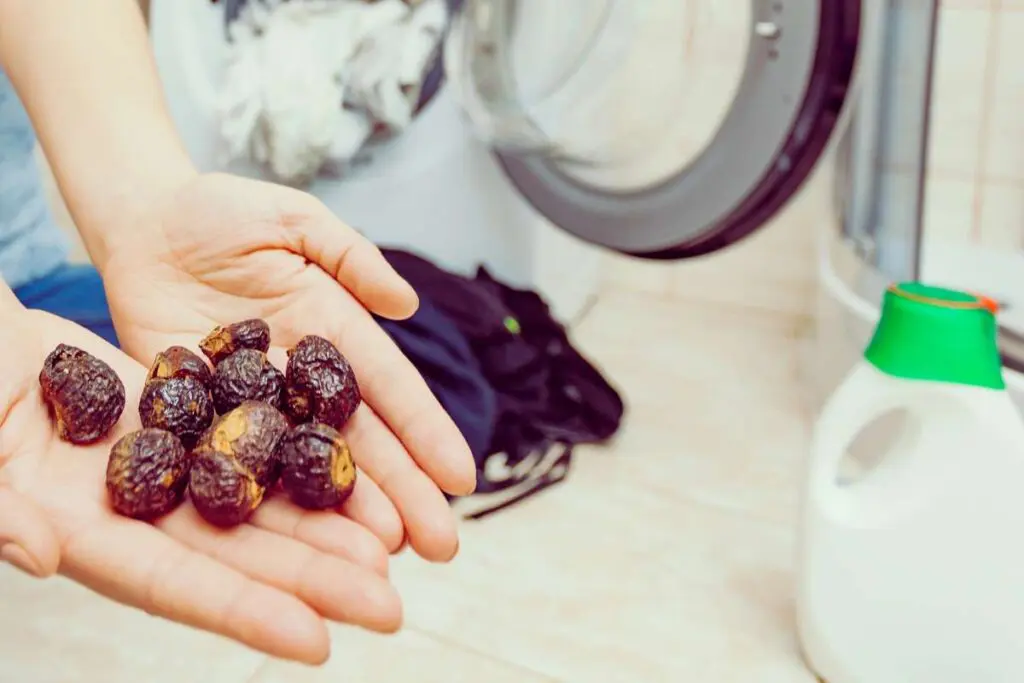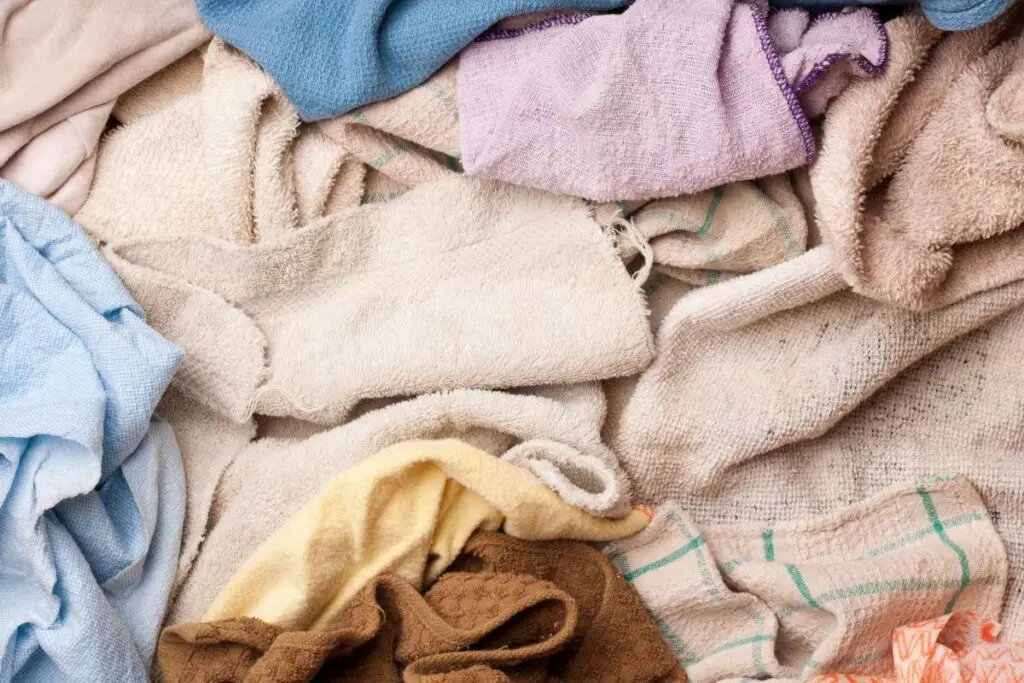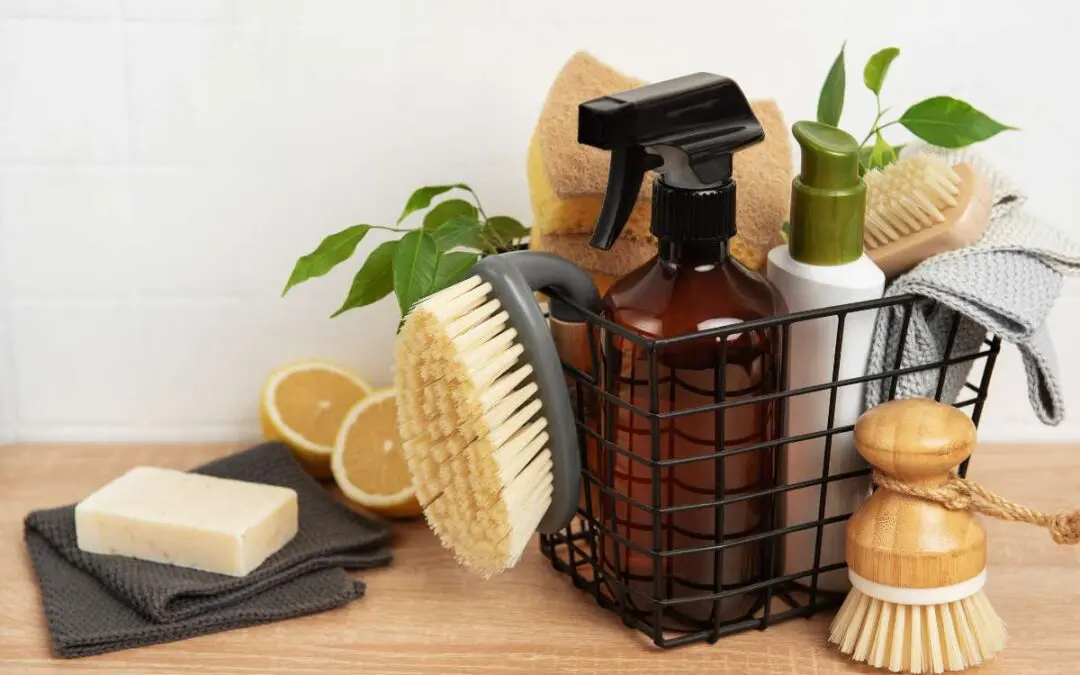Nothing beats the satisfaction that accompanies the smell of a freshly cleaned home… until you realize what you’re smelling is a cocktail of artificial scents from mystery chemicals and known endocrine disruptors.
“Conventional” harsh-scented cleaning products might seem to do the trick, but they can be a trojan horse for toxic ingredients that you can’t pronounce and a headache from the fumes. Good news: traditional, natural alternatives have been in use for decades, and it’s time to bring back the wisdom of the past. Ready to clean smarter, not harder and leave the caustic chemicals we’ve gotten far too used to behind? Let’s get into it.
Ditch the Dryer
That favorite band t-shirt from college that you love? It won’t stay your favorite for long after its weekly battle with your machine dryer. Dryers don’t just dry; they degrade.
The high temperatures of your most convenient appliance weaken fabric structure, causing your clothes to pill, lose their shape and vibrancy, and shrink. On top of that, running a dryer multiple times a week can blow your energy budget. According to the U.S. Energy Information Administration (EIA), dryers account for 6% of household electricity use in the US.
In contrast, air drying gives clothes a longer, healthier lifespan without the constant assault of heat. And if the static cling drives you crazy, line driving will eliminate it naturally– sans dryer sheets.
Here are some ideas to make air drying work for you:
- Outdoors: A classic clothesline is the most efficient, but you can also use a foldable drying track for a smaller backyard or balcony. Make sure that you keep the clothes away from direct sunlight to prevent fading and space them out to optimize airflow.
- Indoors: Use a foldable drying rack, hang clothes over a shower rod, or purchase a retractable clothesline if you have a dedicated laundry area. To avoid stiffness, shake out the garments before hanging them and add a splash of vinegar to the rinse cycle.
- Maximizing small spaces: If you live in an apartment, a wall-mounted drying rack or over-the-door hooks can save space. Try to position the racks near an open door or fan to reduce drying time.

Beyond Detergents
Swapping out conventional laundry detergents feels like a leap, but it’s an easy way to cut out toxic waste and expenses. Also, that plastic jug of detergent you buy– spoiler alert: it’s not great for you or the environment.
The good news is that natural alternatives work just as well, if not better, without the toxic overload. Dryer sheets are coated in synthetic fragrances and chemicals that transfer onto your clothes and affect your endocrine system.
Instead, try wool balls, which reduce drying time by improving air circulation, naturally eliminate static without residue, and last for years, replacing the cost and environmental impact of thousands of single-use dryer sheets. For bonus points, add a few drops of essential oils to the dryer balls before tossing them in to lightly infuse your clothes with fragrance.
Soap nuts, which may sound like something out of a wellness trend, are an all-natural laundry detergent that has been used for centuries. These dried berries contain saponins – a natural surfactant that lifts dirt and oils. They’re completely biodegradable, hypoallergenic, and zero-waste because the used shells can be composted when they stop foaming. To use, add 4-6 soap nuts into a small cloth bag with your laundry.
To level up your laundry game even further, these simple pantry staples will do the job:
- Half a cup of vinegar acts as a natural fabric softener, odor eliminator and static reducer.
- Half a cup of baking soda whitens, deodorizes, and boosts the effectiveness of lemon.
- Lemon juice, hydrogen peroxide, and salt tackle tough spots without bleach.
Fresh Air Over Fragrance
Ditch the smell of a chemical factory in your home by avoiding store-bought air fresheners, which don’t even freshen the air but just mask odors with synthetic fragrances. Store-bought air fresheners contain phthalates and other chemicals linked to hormone disruption, allergies and respiratory issues.
Supporting the body’s detoxification mechanisms with natural methods such as liposomal glutathione is a crucial strategy in today’s increasingly toxic environment, but avoiding some of the major endocrine disruptors is always worth the effort. Refresh your space with these easy steps:
- Essential oils: Lavender, lemon, eucalyptus, and tea tree leave a crisp, clean, and bright scent in your home.
- Simmer pots: Toss a few fragrant ingredients into a pot of water and bring it to a low simmer. Anything works, but cinnamon sticks, orange peels, cloves, lemon slices, rosemary, vanilla, and mint are guaranteed crowd-pleasers.
- Odor absorbers: Baking soda, activated charcoal, and house plants, including snake plants and peace lilies, are natural odor neutralizers. Place them in areas prone to strong smells like pet litter or gym bags.

Low-Waste Cleaning Hacks
Think about all the waste you generate while cleaning. Traditional cleaning techniques like using disposable paper towels and plastic-heavy cleaning tools wear out quickly and end up in landfills.
The average American household goes through over 100 pounds of tissues and paper towels annually. Switch to these reusable alternatives:
- Swedish dishcloths are absorbent, quick drying and compostable.
- Repurpose old t-shirts and towels as cotton rags.
- Microfiber towels are highly effective at trapping dirt and dust without chemical cleaners.
Traditional sponges are bacteria magnets and incubators that shed microplastics into the water supply (and onto our dishes) every time they’re used. Instead, try out these health and eco-friendly options:
- Coconut husk scrubbers are naturally antimicrobial and compostable.
- Plant-based loofahs scrub dishes and surfaces with the same efficacy as a traditional sponge.
- Compostable sponges made from wood pulp of cellulose break down naturally at the end of their life.
You can also repurpose many of your household items and replace the cabinet full of store-bought cleaning products with these natural alternatives:
- Used coffee grounds are a gentle abrasive for scrubbing grease.
- Lemon peels are a natural degreaser and deodorizer for kitchen surfaces.
- Newspapers are the secret to streak-free glass and mirrors.
A Naturally Clean Home is a Happy Home
Don’t settle for a lung full of mystery chemicals or throw money, quite literally, down the drain on single-use products that hardly last a week. The truth is, natural cleaning works just as well for a fraction of the environmental and monetary cost, with the added benefit that your laundry, dishes, and countertops won’t smell like a 6th-grade science fair experiment gone wrong. A fresher, cleaner home without the toxins and waste? Sounds like a win.

